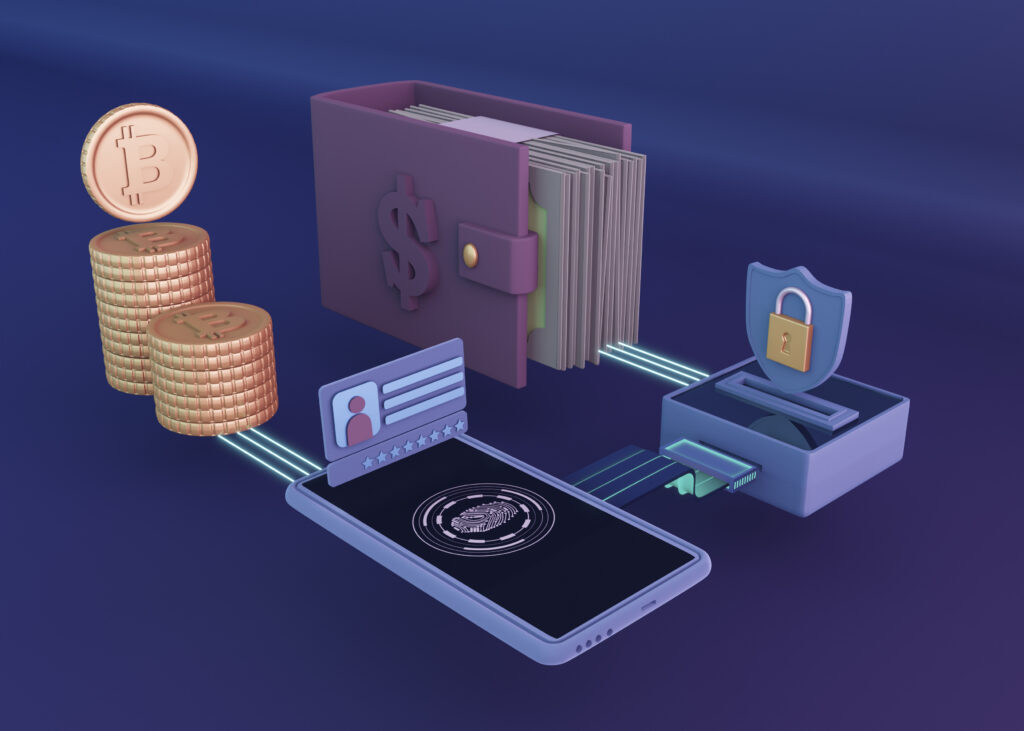The rise of cryptocurrency has transformed the financial landscape, offering new opportunities for investors and traders. However, with the increasing value of digital currencies, the need for robust security measures has never been more crucial. In this guide, we’ll cover essential strategies on how to secure your crypto assets, ensuring your investments remain safe from theft, hacking, and other risks.
1. Understand the Importance of Crypto Security
Before delving into specific security practices, it’s important to understand why securing your crypto assets is critical. Cryptocurrencies are decentralized, meaning they aren’t protected by traditional banking systems. If you lose access to your wallet or become a victim of cybercrime, there’s no central authority that can help recover your funds.
Hackers target crypto traders due to the irreversible nature of cryptocurrency transactions. Once your crypto is stolen, it’s almost impossible to get it back. Therefore, implementing strong security measures is essential for protecting your digital assets.
2. Use Strong Passwords
One of the simplest yet most effective ways to protect your crypto assets is by using strong, unique passwords for all your accounts. Avoid using easily guessable passwords, such as your name, date of birth, or common phrases. Instead, opt for long, complex passwords that combine uppercase and lowercase letters, numbers, and special characters.
For added security, consider using a password manager to store and manage your passwords securely. This way, you can generate and use strong passwords for each account without having to memorize them all.
3. Enable Two-Factor Authentication (2FA)
Two-factor authentication (2FA) is a crucial security measure that adds an extra layer of protection to your accounts. With 2FA, even if someone manages to guess your password, they will still need the second factor (usually a code sent to your phone or email) to access your account.
Most cryptocurrency exchanges and wallets offer 2FA as a security feature. Always enable it to ensure your crypto accounts are protected. Consider using an authenticator app like Google Authenticator or Authy for better security than relying on SMS-based 2FA, which can be vulnerable to SIM-swapping attacks.
4. Use Hardware Wallets for Cold Storage
When it comes to how to secure your crypto assets, one of the most effective strategies is using hardware wallets for cold storage. A hardware wallet is a physical device that stores your private keys offline, making it highly secure from online threats like hacking and phishing.
Popular hardware wallets, such as the Ledger Nano S, allow you to store your cryptocurrencies in an offline environment. This reduces the risk of losing your assets due to malware or online hacks. While hardware wallets may cost a little upfront, they provide peace of mind knowing your funds are safe.
5. Backup Your Private Keys
Your private keys are the most crucial part of securing your crypto assets. If you lose access to your private keys, you lose access to your cryptocurrencies. Always back up your private keys and store them securely, preferably in multiple locations.
Avoid storing your private keys digitally (e.g., in email or cloud storage), as they can be vulnerable to hacks. Instead, write them down on paper and keep them in a secure location, such as a safe deposit box.
🔗 How to Avoid Common Crypto Trading Mistakes.
6. Be Aware of Phishing Scams
Phishing scams are a common tactic used by cybercriminals to steal crypto assets. These scams usually involve fake websites or emails that look like legitimate crypto exchanges or wallets. Once you enter your private information, the hacker can access your account and steal your funds.
To avoid falling for phishing scams, always double-check the website’s URL to ensure you’re on a legitimate site. Don’t click on links from unsolicited emails or messages. Additionally, ensure the website uses HTTPS encryption for added security.
7. Keep Your Software and Devices Updated
Keeping your devices, software, and crypto wallet apps up to date is essential for securing your assets. Cybercriminals often exploit vulnerabilities in outdated software to gain unauthorized access to accounts. By regularly updating your software, you ensure that you’re protected from the latest security threats.
Enable automatic updates on your devices and crypto apps to make sure you’re always running the latest version with security patches. Additionally, ensure your antivirus and anti-malware software is up to date and running on your devices.
8. Use Decentralized Exchanges (DEXs)
When choosing where to trade your cryptocurrencies, consider using decentralized exchanges (DEXs) instead of centralized exchanges (CEXs). DEXs allow you to retain control over your private keys and assets, eliminating the risk of an exchange being hacked and your funds being stolen.
While DEXs may have a steeper learning curve, they offer enhanced privacy and security compared to CEXs. Some popular DEXs include Uniswap and SushiSwap.
9. Secure Your Wi-Fi Network
A compromised Wi-Fi network can leave your crypto assets vulnerable to attacks. Ensure that your Wi-Fi network is password-protected and use encryption (WPA2 or WPA3) to secure your connection. Avoid using public Wi-Fi for crypto transactions or accessing your wallets.
Additionally, consider using a Virtual Private Network (VPN) when accessing your crypto accounts from public or untrusted networks. A VPN encrypts your internet connection, protecting your data from hackers.
10. Be Mindful of Social Media and Public Sharing
Cybercriminals often gather information from social media profiles and public posts to target potential victims. Be cautious about sharing details about your crypto holdings, investments, or trading strategies online. Avoid discussing your crypto assets on public forums or social media platforms.
Additionally, be wary of unsolicited offers or messages from individuals claiming to be crypto experts. Many of these are scams designed to steal your funds.
Secure Your Crypto Assets is Crucial
Securing your crypto assets should be a top priority for anyone involved in the world of digital currencies. By following the strategies outlined in this article, you can significantly reduce the risk of losing your funds to cybercriminals. Always remain vigilant, stay informed about the latest security threats, and implement best practices to ensure your crypto assets remain safe.
For more information on how to secure your crypto assets, visit Crypto Trading Hack, where we provide expert tips and strategies for keeping your investments safe.



